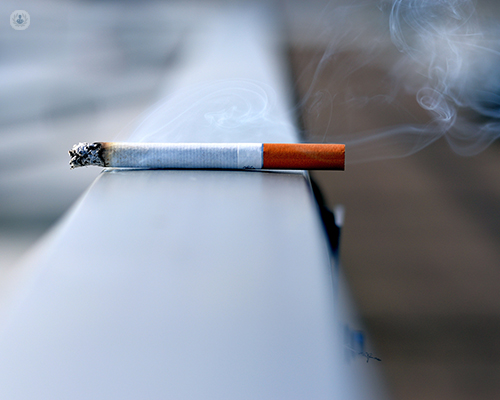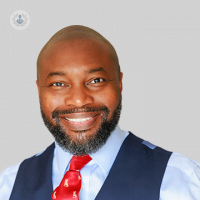The causes, symptoms and ways to avoid oral cancer
Written by:Oral cancer, also known as mouth cancer, describes different tumours which affect different parts of the mouth. Mr Kavin Andi, a leading maxillofacial surgeon, explains what causes cancers of the head and neck, the symptoms and how they can be avoided.

Tumours may arise in the tongue, the floor of mouth, the lining of the cheeks, the roof of the mouth, as well as the lips. Tumours may also rise in the glands that produce saliva. These include the parotid glands on the sides of the face - these extend into the neck, as well as the submandibular glands and sublingual glands. Mouth cancers may present in different ways as either lumps or ulcers. Overall, if a sore or ulcer is present in the mouth and hasn't healed after a period of two weeks, this ought to be examined more closely.
What causes cancers of the mouth?
One of the most important causes of cancer of the mouth is smoking. Smoking, in its various forms includes cigars and tobacco in the form of betel nuts or areca nuts. There is no safe quantity in terms of cigarette smoking and the evidence for using e-cigarettes has not yet been proven. Alcohol is also strongly associated with developing mouth cancer. Recently, studies have demonstrated an association of human papillomavirus (HPV) with cancers of the throat in particular. HPV is a virus that is known to cause genital warts.
What are the symptoms of mouth cancer?
The symptoms of mouth cancer are variable. The following should be investigated if they do not heal within a period of two weeks:
- Ulcers
- Lumps in the mouth
- Persistent lumps in the neck (they can be either painful or painless)
The following should also be examined by a specialist:
- Teeth that become loose without an obvious cause or if you have had a tooth extracted recently by your dentist and the socket has failed to heal.
- If you are a denture wearer and you found that your dentures are now ill-fitting, it's important to have a specialist examine the areas under the denture for a potential cause.
- Any numbness that you experience in the face, for example, in the lower lip or upper face under the eye.
- Red or white patches inside the mouth.
- If you find that your speech has changed and you are lisping, for example.
The majority of these are potentially cancerous and these can be excluded with some very simple investigations.
How common are these cancers?
Approximately 7000 people are diagnosed with mouth cancer every year in the United Kingdom. This represents approximately 2% of all cancers diagnosed. These cancers are more common in the older age group of 50 to 74 years. Overall, men are more commonly diagnosed with mouth cancer than women and this is thought to be due to the fact that men consume more alcohol than women, on average.
How can I reduce my risk of developing head or neck cancer?
Probably the most important thing you can do is to not smoke cigarettes or utilise tobacco in any of its various forms. It is also important to consume less than 14 units of alcohol per week and that alcohol should be spread out over the week rather than being concentrated over the weekend. A healthy balanced Mediterranean style diet is helpful and this needs to be rich in tomatoes, citrus fruits, vegetables, as well as olive oils and fish.
Regular check-ups with your dentists are also important as your dentist is trained in spotting the early signs of mouth cancer.
If you are concerned about oral cancer, make an appointment with a specialist.


